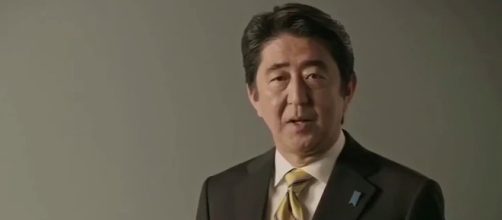World leaders have expressed sadness over the assassination of former Japanese Prime Minister Abe Shinzo on July 8. The murder had occurred during Abe's speech at an election campaign event in Nara, a city in southern Japan. A homemade gun had been used to shoot Abe twice. It noted that a 41-year-old suspect had been arrested.
U.S. President Joe Biden and other international figures reacted to the assassination on Twitter. Biden said the murder had left him "stunned, outraged, and deeply saddened." The Japanese leader had been "a champion of the friendship between our people," Biden said.
"The United States stands with Japan in this moment of grief," Biden said.
Biden also issued a proclamation that the nation's flag would be flown at half-staff at the White House, U.S. embassies and other federal buildings "as a mark of respect for the memory of Abe Shinzo" until sunset on July 10. The proclamation can be read in its entirety at the White House website.
I am stunned, outraged, and deeply saddened by the news that my friend Abe Shinzo, former Prime Minister of Japan, was shot and killed. He was a champion of the friendship between our people.
The United States stands with Japan in this moment of grief.
— President Biden (@POTUS) July 8, 2022'A friend of America'
The U.S. Ambassador to Japan Rahm Emanuel also grieved for the Japanese leader on Twitter.
"Prime Minister Abe was ahead of his time," Emanuel said. "The clarity of his voice will be truly missed. The United States has lost a trusted partner and outspoken advocate for our shared ideals," the ambassador said.
— ラーム・エマニュエル駐日米国大使 (@USAmbJapan) July 8, 2022'A great man of vision'
The assassination of Abe was "incredibly shocking," said Canadian Prime Minister Justin Trudeau in a tweet. "The world has lost a great man of vision, and Canada has lost a close friend," he said, adding, "You'll be missed, my friend."
The assassination of @AbeShinzo is incredibly shocking – and I’m deeply saddened. The world has lost a great man of vision, and Canada has lost a close friend. My thoughts are with his wife, Akie, and the people of Japan as they mourn this loss. You’ll be missed, my friend.
— Justin Trudeau (@JustinTrudeau) July 8, 2022Australian Minister for Foreign Affairs Penny Wong offered her condolences on Twitter.
"Australia has lost a true friend and we mourn with you," she said. Wong retweeted a post from Australian Prime Minister Anthony Albanese.
'One of Australia's closest friends'
Albanese said the assassination had left him "shocked and saddened." Abe had been "one of Australia's closest friends" and "a giant on the world stage," Albanese said. "Mr Abe was a leader in the Indo-Pacific, championing a vision of a free and open region. The Quad and the Comprehensive and Progressive Agreement for Trans-Pacific Partnership are in many ways the results of his diplomatic leadership," the Australian leader said.
I join the Prime Minister in offering heartfelt condolences to Mr Abe’s family and all the people of Japan for this most terrible loss.
Australia has lost a true friend and we mourn with you. https://t.co/qsyS5OYyvh
— Senator Penny Wong (@SenatorWong) July 8, 2022Global Times, a Chinese state-affiliated newspaper, reported that China's embassy in Tokyo had expressed grief at the death of the Japanese leader.
The publication also quoted Chinese Foreign Ministry spokesperson Zhao Lijian as saying Abe had helped improve relations between China and Japan.
Japanese Prime Minister from 2012 to 2020, Abe had come from "a staunchly nationalist family of leading politicians," The New York Times reported. He had striven to dispel the stigma of Japan's World War II-era militarism and enable the country to assume the role of an unabashedly assertive military power, the paper said. It noted that the 67-year-old politician had been in Nara to campaign for his Liberal Democratic Party in the run-up to the country's July 10 election.
Derek Grossman, a RAND Corporation national security analysis, tweeted that Abe had been "the true brains behind the US Indo-Pacific Strategy."
Former Japanese PM Shinzo Abe was the true brains behind the US Indo-Pacific Strategy. From his "two oceans" approach that conceptualized Pacific and Indian Oceans together, to his "security diamond" of like-minded democracies (precursor to Quad), his legacy is gigantic. RIP.
— Derek J. Grossman (@DerekJGrossman) July 8, 2022In 2015, Abe had become the first person from Japan to address a joint session of Congress, The Washington Post noted. The paper recalled that Abe had established a close relationship with President Donald Trump during their tenure in office.


